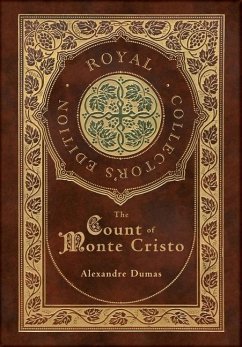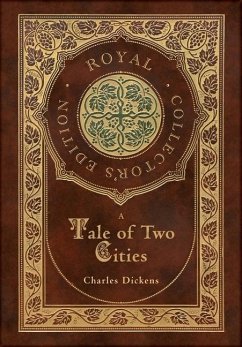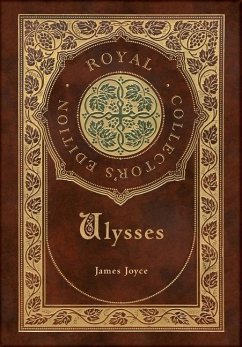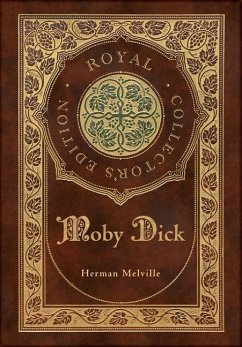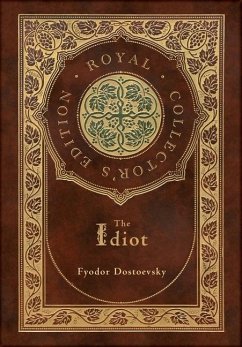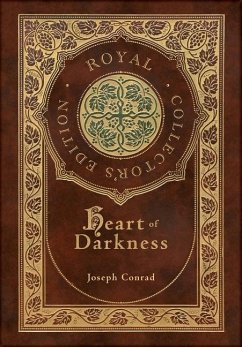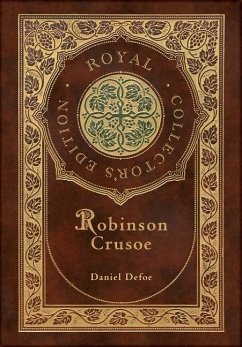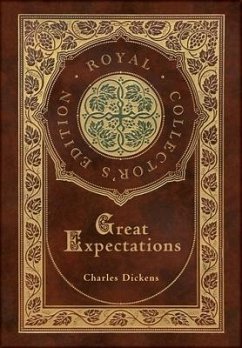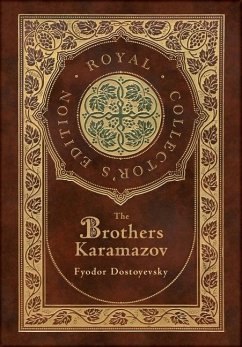
Miguel De Cervantes
Gebundenes Buch
Don Quixote (Royal Collector's Edition) (Case Laminate Hardcover with Jacket)
Versandkostenfrei!
Versandfertig in über 4 Wochen

PAYBACK Punkte
27 °P sammeln!




The story follows the adventures of Don Quixote, who decides to set out to revive chivalry, undo wrongs, and bring justice to the world. He recruits a farmer, Sancho Panza, as his squire and imagines that he is living out a knightly story.
Miguel de Cervantes Saavedra (29 September 1547 - 23 April 1616) was a Spanish writer. His most famous book was Don Quijote de la Mancha. It is considered the first modern novel, and therefore Cervantes was the first novelist.The book has been published in 65 countries. The work is considered among the most important in all of literature. He is sometimes called "The Prince of Satire." In 1570, Cervantes had enlisted as a soldier in a regiment of the Spanish naval elite corps, Infantería de Marina, stationed in Naples, then a possession of the Spanish crown. He was there for about a year before he saw active service. In September 1571, Cervantes sailed on board the Marquesa, part of the galley fleet of the Holy League, Spain, the Republic of Venice, the Republic of Genoa, the Duchy of Savoy, the Knights Hospitaller based in Malta, and others, under the command of King Philip II's illegitimate half brother, John of Austria, that defeated the Ottoman fleet on October 7 in the Gulf of Lepanto near Corinth, at great cost to both sides. Though taken down with fever, Cervantes refused to stay below, and begged to be allowed to take part in the battle, saying that he would rather die for his God and his king than keep under cover. He fought bravely on board a vessel, and received three gunshot wounds - two in the chest, and one which rendered his left arm useless. In Journey to Parnassus he was to say that he "had lost the movement of the left hand for the glory of the right" (he was thinking of the success of the first part of Don Quixote). Cervantes always looked back on his conduct in the battle with pride; he believed that he had taken part in an event that would shape the course of European history.
Produktdetails
- Verlag: Royal Classics
- Seitenzahl: 944
- Erscheinungstermin: 17. November 2020
- Englisch
- Abmessung: 229mm x 152mm x 57mm
- Gewicht: 1522g
- ISBN-13: 9781774378625
- ISBN-10: 1774378620
- Artikelnr.: 64373412
Herstellerkennzeichnung
Libri GmbH
Europaallee 1
36244 Bad Hersfeld
gpsr@libri.de
Für dieses Produkt wurde noch keine Bewertung abgegeben. Wir würden uns sehr freuen, wenn du die erste Bewertung schreibst!
Eine Bewertung schreiben
Eine Bewertung schreiben
Andere Kunden interessierten sich für


